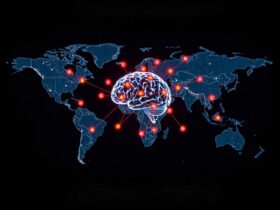ChatBot GPT’s release caused artificial intelligence (AI) to explode on the global scene, immediately impacting all types of businesses, education, and the arts. Ethical concerns arose rapidly, from students using AI to generate term papers to journalists getting freaked out by conversations with AI systems (although you could argue the journalists brought that on themselves).
The Rome Call for AI Ethics and how CIOs are responding has become a central topic of discussion in all kinds of businesses, not just tech. CIOs and those who hire them are wondering how CIOs can ensure their company’s technology is compliant with the ethical standards outlined in this call.
What Are the Principles of the Rome Call for AI Ethics?
In February 2020, leaders of several tech companies (including Microsoft and IBM), the United Nations Food and Agriculture Organization, and representatives of the Italian government signed on to the Rome Call for AI Ethics. More recently, leaders of the three “Abrahamic” religions—Islam, Christianity, and Judaism—met in January 2023 to add signatories representing these spiritual traditions to this statement of algoethics.
The Call outlines six main points of ethical guidance:
- Transparency: AI systems must be explainable in a way that is understandable to everyone.
- Inclusion: AI systems should be built in a way that ensures everyone, regardless of circumstances, has the opportunity to develop and express themselves.
- Responsibility: Both those who design AI systems and those who use them must do so responsibly and transparently.
- Impartiality: AI designers and systems must not act or create with bias but safeguard fairness and human dignity.
- Reliability: AI systems must be reliable.
- Security and Privacy: AI systems must operate securely and protect user privacy.
Ethics, Human Rights, and Education
The Call says that AI should respect and protect human rights and the environment, observe ethical principles, and advance education. It emphasizes that AI must respect the dignity, equality, and freedom of all human beings.
The Call prioritizes education to ensure a better future for younger generations, to protect the elderly with access to lifelong learning, and to serve the needs of people with disabilities.
How Can CIOs Respond to the Rome Call for AI Ethics?
CIOs are uniquely positioned to ensure their companies abide by the ethical standards outlined in the Rome Call for AI Ethics. In fact, knowledge of the Rome Call for AI Ethics and how CIOs should respond to it could become a major factor in hiring the right CIO to help improve both a business’s technology and its bottom line.
CIOs should take a proactive approach by engaging in meaningful conversations with their teams about the implications and responsibilities of using AI technology to build a culture of responsibility and show that the organization takes ethical commitments seriously.
Information technology leaders should ensure their organizations have the necessary technology, training, governance policies, and tools to monitor data usage and detect bias.
The CIO is the executive responsible for ensuring transparency about AI practices. It is up to CIOs to make sure their organizations are taking the necessary steps to adhere to these principles. If done correctly, ethical AI practices can be beneficial for all parties involved.














Leave a Reply